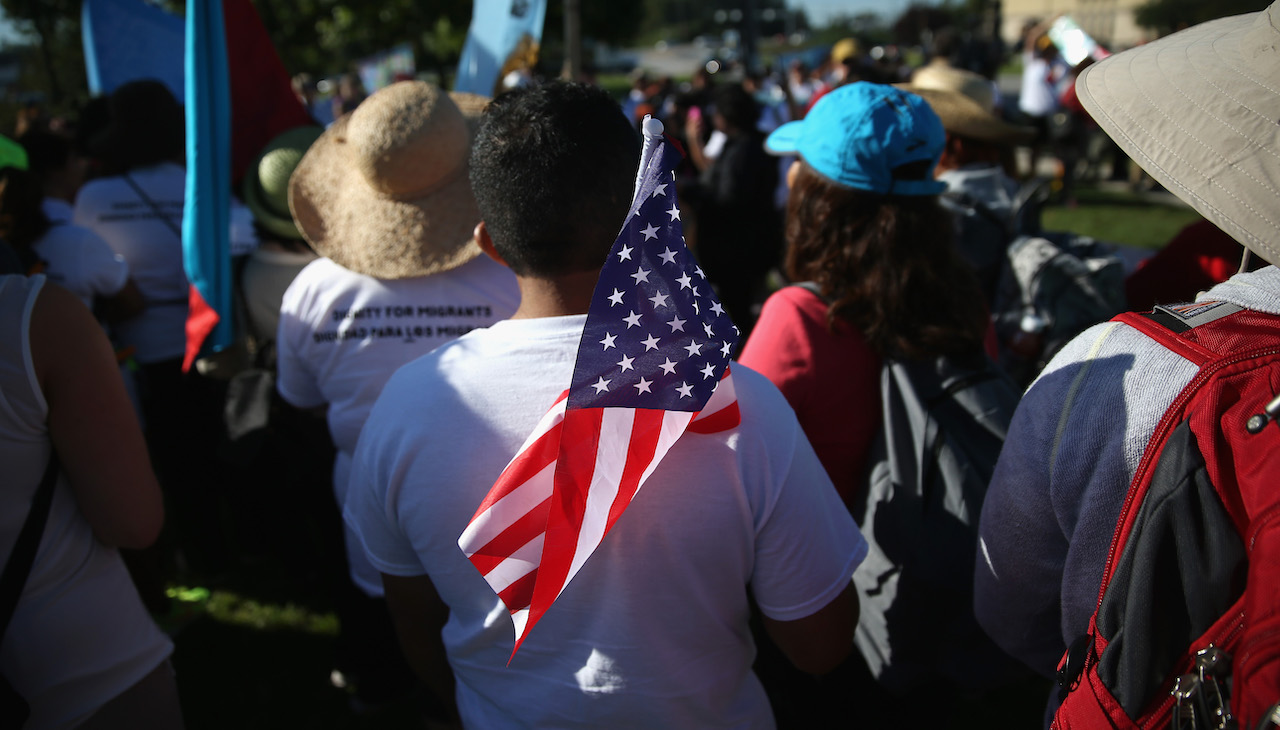
York County sued over lack of Spanish-language voting materials
CASA, a Latino and immigrant advocacy group, is hoping to compel the County Board of Elections to update its voting materials to serve York's Puerto Ricans
Another voting-related lawsuit was recently added to the country’s docket as CASA, a Latino group supporting immigrant and working families, brought a lawsuit this week against York County over a lack of Spanish-language voting materials at a polling place for Puerto Rican voters.
CASA’s complaint was leveled by Latino Justice, a Puerto Rican Legal Defense, and Education Fund, and Dechert LLP, a private firm.
The lawsuit, directed at the County Board of Elections officials, alleges violations under section 4 (e) of the Voting Rights Act (VRA), which protects the voting rights of those educated in “American-flag schools,” including Puerto Rico, a Commonwealth of the U.S.
“[Section 4(e)] is designed to allow Puerto Ricans who were educated in Puerto Rican schools to vote in Spanish,” said Rayza Goldsmith, one of the attorneys in the case.
“To force these folks to vote in a language that is not their dominant language would be an effort to deprive them of the effective right to vote. We are asking the county to provide Spanish-language services and certain Spanish-language resources to Spanish speakers ahead of the Nov. 8 general election,” Goldsmith added.
CASA’s complaint documents a lengthy list of testimonials acquired over the years from its members, of whom the majority are Puerto Ricans residing in York County. One instance details the story of Juan, a Puerto Rican voter who sought assistance from poll workers in Spanish, but no one was able to assist him.
“When I voted in York County, it’s all in English, and no one seemed to know how to help Spanish speakers. I deserve the chance to understand my vote just like any other eligible voter,” said Juan, who is also a member of CASA.
Over the years, CASA has collected grievances from York-based voters, prompting them to reach out to the county via a letter in late August, urging them to provide updated voting materials ahead of the midterms.
According to 2021 census data, Hispanics make up 8.9% of the overall population in York, or roughly 40,823 — CASA estimates over 14,000 of those Hispanic residents are of Puerto Rican descent.
In their correspondence to the county, CASA also detailed the story of María, Senior Director of Membership at the nonprofit group, and her experience navigating the ballot casting process in York.
“María was told that no provisional ballots or ballot instructions were available in Spanish. Poll workers laughed at Marías request for a Spanish-speaking poll worker to assist her,” the letter read.
Upon requesting a provisional ballot, poll workers questioned María’s citizenship, the letter reads and directed her to provide her license and passport to find her name in the list of registered voters.
Under Pennsylvania law, voters are not required to show ID unless they are casting a ballot for the first time. It was not María’s first time voting.
“They should not have done that,” Goldsmith underlined. “Even if [voters] are asked to provide identification, it does not have to be a photo ID (...) It’s certainly extremely discriminatory that she was asked to do so and frankly unnecessary since there are lists of registered voters.”
“All they had to do was refer to the list.”
RELATED CONTENT
The county did not respond to CASA’s letter. AL DÍA reached out to the county to confirm supervision of discriminatory practices at poll sites, but did not receive a response.
Responding to the county’s inaction, CASA onboarded Latino Justice, and a private law firm. The county heeded a discussion, but ultimately, nothing materialized for voting access materials, according to Goldsmith.
“We understand they can’t change all of their practices overnight, however, we were seeking some substantial but reasonable changes in the timeframe,” Goldsmith noted.
AL DÍA also reached out to the county over the lack of materials, as well as the reasoning for not providing an avenue, but did not receive a response.
CASA hopes the county can provide sample ballots that voters may use as a reference in lieu of Spanish-language ballots, given the time crunch between the filing of the complaint and its proximity to election day.
The county told the group that, from a practical standpoint, creating accessible voting materials is “not a priority at this stage in the game.”
“Once we were asking for specific measures to be taken before the Nov. 8 election, it was at that point that we hit a bit of a brick wall,” Goldsmith recalled of the initial conversations with York election officials.
Responding to CASA’s complaint, a Pennsylvania Judge scheduled a next-day conference between Latino Justice’s legal team and the county "the urgent nature of Plaintiff's complaint," the judge said.
“Our hope is that by bringing this lawsuit, and bringing it to court, the county will work with us on trying to improve language access services,” Goldsmith remarked of what she expects the county’s response to be. “It can be an opportunity for us to make sure that everyone who is eligible, and wants to, has access to the polls and vote.”










LEAVE A COMMENT: